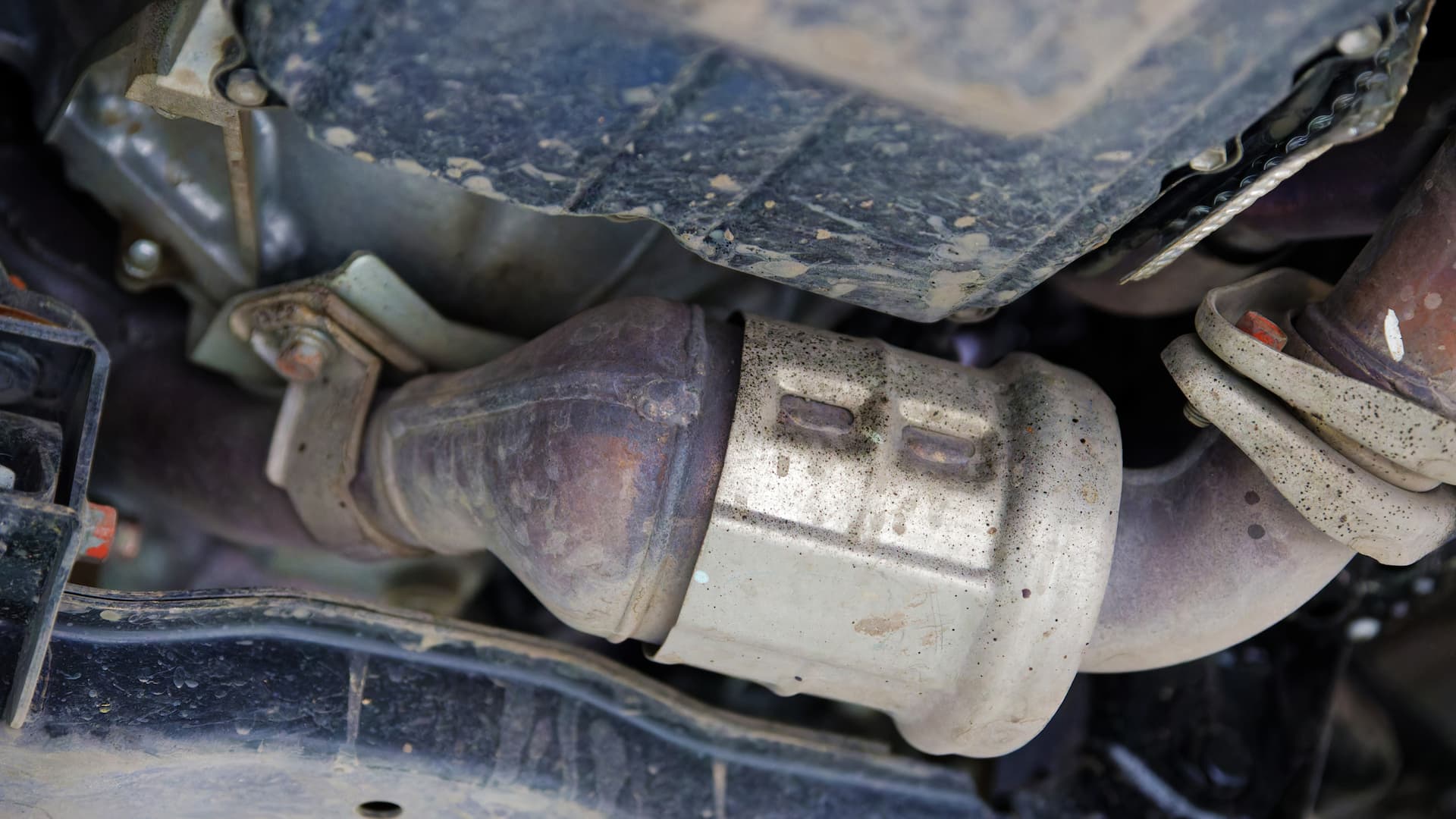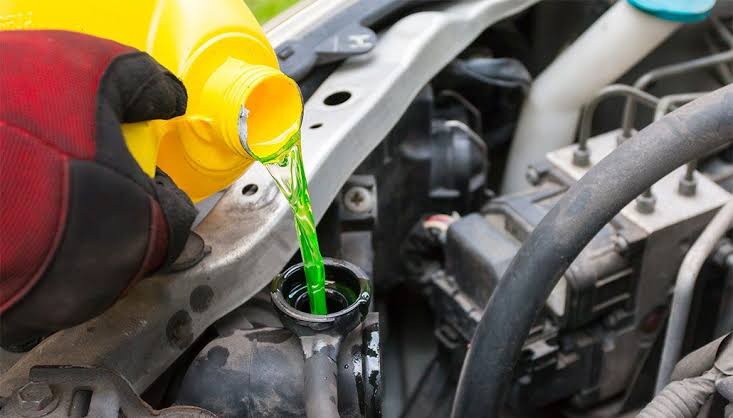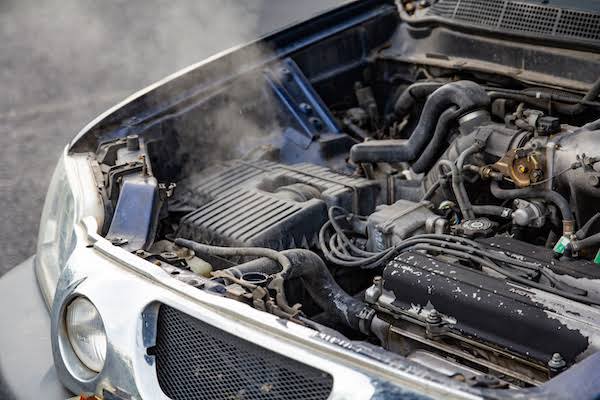Does the Catalytic Converter Affect the Engine?

The catalytic converter plays a crucial role in a vehicle’s exhaust system, helping to reduce harmful emissions. But many car owners wonder whether a faulty or damaged catalytic converter can impact the performance of the engine. In this article, we’ll explore how the catalytic converter works, how a malfunctioning one can affect your engine, and what signs to look for.
What is a Catalytic Converter?
A catalytic converter is a key component in the exhaust system of modern vehicles. Its primary function is to convert harmful pollutants in the engine’s exhaust gases into less harmful emissions before they exit the vehicle through the tailpipe. The converter uses a catalyst, typically made of platinum, palladium, and rhodium, to facilitate chemical reactions that break down dangerous gases such as carbon monoxide, nitrogen oxides, and hydrocarbons.
How a Catalytic Converter Affects Engine Performance
While the catalytic converter is not directly responsible for engine performance, it can have an indirect impact on the engine if it becomes clogged or damaged. Here’s how:
1. Exhaust Flow Restriction
- Clogged or damaged catalytic converters can lead to a significant restriction in exhaust flow. This reduces the amount of exhaust that can be expelled from the engine, increasing back pressure in the system. When exhaust gases have difficulty exiting, it can force the engine to work harder, causing it to lose power.
- Engine performance suffers as a result, leading to issues like sluggish acceleration and reduced fuel efficiency.
2. Reduced Engine Power
- If the catalytic converter becomes severely clogged, it can create a bottleneck in the exhaust system, preventing exhaust gases from flowing out of the engine properly. This causes the engine to build up internal pressure, leading to a loss of power. As a result, you may experience difficulty accelerating, especially during high-speed driving or when the engine is under heavy load.
3. Engine Misfire
- A damaged or malfunctioning catalytic converter can also lead to engine misfires. The increased back pressure or restricted exhaust flow may cause an imbalance in the engine’s air-fuel mixture, resulting in an inconsistent firing pattern in the cylinders. Misfires can damage the engine over time, causing rough idling, poor fuel economy, and potential engine damage.
4. Overheating of the Engine
- In some cases, a failing catalytic converter can cause the engine to overheat. When exhaust gases are unable to flow freely, the temperature in the exhaust system rises, which may cause the engine to overheat. This can be harmful to the engine and may lead to severe damage if not addressed promptly.
Symptoms of a Faulty Catalytic Converter
If the catalytic converter is affecting the engine, there are several symptoms to watch for:
1. Check Engine Light
- One of the first signs of a problem with the catalytic converter is the check engine light turning on. If the vehicle’s onboard diagnostic system detects a fault in the emissions system, it will trigger the check engine light. Common error codes related to the catalytic converter include P0420 and P0430, indicating issues with the converter’s efficiency.
2. Reduced Engine Performance
- You may notice a decrease in acceleration or a loss of power while driving, especially when the vehicle is under load (e.g., climbing hills or overtaking other cars). This is often a direct result of exhaust flow restriction caused by a faulty catalytic converter.
3. Poor Fuel Economy
- A clogged catalytic converter may also lead to a drop in fuel efficiency. The engine works harder to expel exhaust gases, using more fuel in the process. This can cause noticeable changes in your miles per gallon (MPG).
4. Rattling Noise
- If a catalytic converter is physically damaged, you might hear a rattling sound coming from underneath the vehicle. This noise occurs when the internal honeycomb structure of the converter breaks apart. This can further obstruct exhaust flow, worsening engine performance.
5. Smell of Rotten Eggs
- A rotten egg smell is often associated with a malfunctioning catalytic converter. This odor is caused by an excess of hydrogen sulfide in the exhaust gases, which the converter would normally neutralize. If the converter is clogged or damaged, this sulfur compound may not be broken down properly.
Can a Catalytic Converter Cause Engine Damage?
Yes, if a catalytic converter is left untreated and continues to malfunction, it can eventually cause serious engine damage. The increased back pressure and misfiring may lead to engine components being damaged, including the pistons, valves, and cylinder heads. Additionally, the excessive heat generated by a clogged catalytic converter can cause the engine to overheat, leading to further damage.
When to Replace a Catalytic Converter
If you notice any of the symptoms mentioned above, it is essential to address the issue promptly. In many cases, replacing a faulty catalytic converter is the best solution. The replacement of a catalytic converter can be costly, but it is necessary to prevent further damage to the engine and to restore proper vehicle performance.
Here are some general signs that it’s time for a catalytic converter replacement:
- The check engine light remains on and diagnostic codes point to catalytic converter failure.
- The vehicle is experiencing significant loss of power, reduced fuel efficiency, or misfires.
- The catalytic converter is physically damaged or clogged, causing noticeable symptoms like noise or overheating.
Conclusion
While the catalytic converter itself does not directly affect engine performance, a malfunctioning or clogged catalytic converter can have a significant impact on the engine’s functionality. It can cause exhaust flow restriction, loss of power, misfires, and engine overheating. If you notice any signs of a failing catalytic converter, it is essential to address the issue promptly to avoid further damage to the engine. Regular maintenance and addressing potential issues early on can help keep both your catalytic converter and engine in top condition.
FAQs
1. Can a bad catalytic converter cause engine misfires?
- Yes, a damaged catalytic converter can cause engine misfires by restricting exhaust flow, leading to an imbalance in the engine’s air-fuel mixture.
2. What happens if you drive with a bad catalytic converter?
- Driving with a bad catalytic converter can lead to poor engine performance, overheating, and potentially serious engine damage.
3. How do I know if my catalytic converter is bad?
- Symptoms include a check engine light, reduced power, poor fuel economy, rattling noise, or a rotten egg smell from the exhaust.
4. Can a bad catalytic converter cause engine overheating?
- Yes, a malfunctioning catalytic converter can restrict exhaust flow, causing the engine to overheat due to increased internal pressure.
5. Should I replace the catalytic converter myself?
- Replacing a catalytic converter typically requires professional knowledge and tools. It is recommended to seek the help of a mechanic to ensure the job is done correctly.





